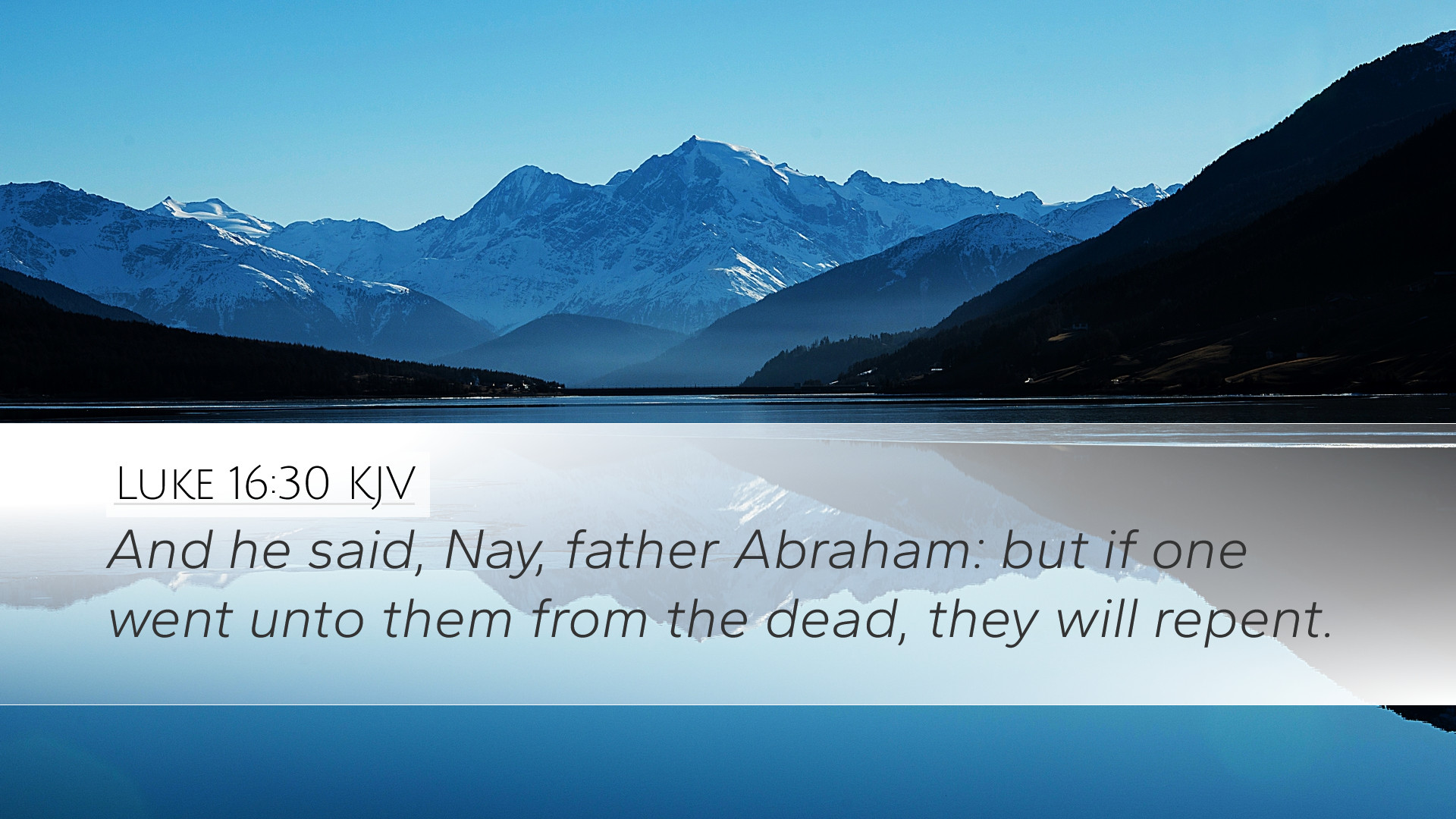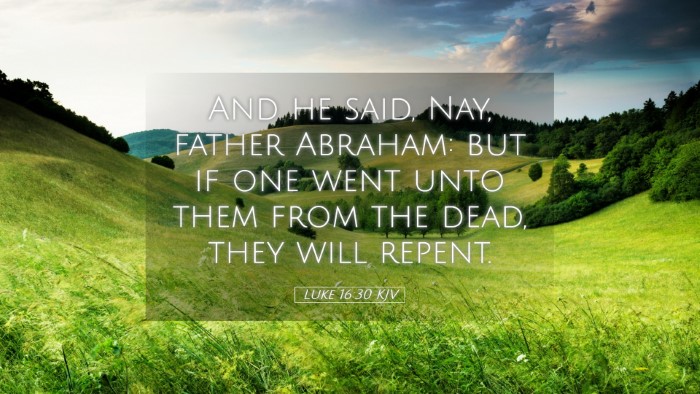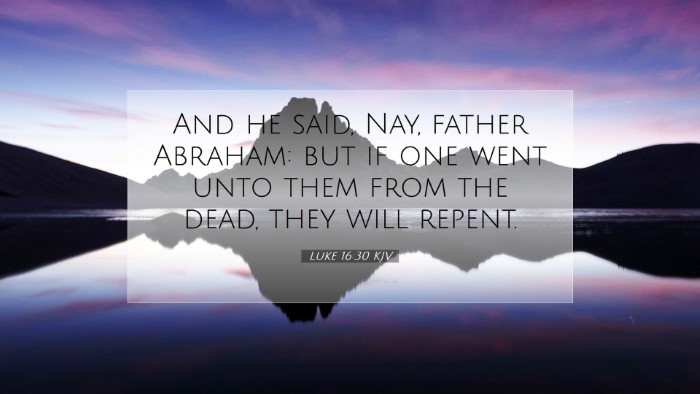Commentary on Luke 16:30
In Luke 16:30, we encounter the poignant plea of the rich man, who, although he is in torment, asks Abraham to send Lazarus to his father's house to warn his five brothers. This verse highlights profound themes of judgment, the reality of hell, and the necessity of repentance. The rich man's request illustrates a desperate desire for salvation, not only for himself but for those he loves.
Contextual Overview
Before delving into the specifics of verse 30, it is essential to understand the broader parable found in Luke 16:19-31, which contrasts the fortunes of the rich man and Lazarus. The rich man lives in luxury, while Lazarus, a beggar, suffers at his gate. Their respective fates in the afterlife—comfort for Lazarus and torment for the rich man—serve as a stark reminder of the consequences of earthly actions.
Insights from Commentators
Matthew Henry's Commentary
Matthew Henry elaborates on the desperation of the rich man, whose torment leads him to seek intercession for his brothers. Henry points out that the rich man's recognition of his condition is significant; he acknowledges the existence of a physical hell and the reality of punishment after death. This highlights a profound truth: earthly wealth and status carry no weight in the spiritual realm.
Henry astutely notes that the rich man's request reflects a lingering hope in the power of miracles. He believes that a resurrection—one that would serve as a supernatural warning to his brothers—might change their hearts. However, Henry emphasizes the futility of such hopes, as true faith cannot be based solely on signs and wonders.
Albert Barnes' Notes
Albert Barnes provides insight into the theological implications of this verse. He posits that the rich man's fear for his brothers underscores the weight of our personal responsibilities regarding evangelism and moral rectitude. Barnes poignantly states that the existence of scripture and the teachings of prophets should suffice for individuals to turn from their sinful paths. The rich man's brothers have access to Moses and the prophets, signaling that God's Word is sufficient for guidance.
Moreover, Barnes emphasizes the sufficiency of divine revelation. He argues that genuine faith predicated on God's Word is stronger than one based on extraordinary experiences. With this in mind, the request of the rich man further illustrates a disconnection from the reality of faith that should be enjoyed through scripture.
Adam Clarke's Commentary
Adam Clarke also expounds on the characteristics of the rich man and his plea, arguing that the desire to see Lazarus sent to warn his brothers reflects a heart still clinging to human reasoning rather than divine wisdom. Clarke suggests that the rich man’s inquiry about sending Lazarus implies a misunderstanding of God's methods of communication and salvation, which predominantly come through scripture and not authoritative signs.
Clarke elaborates on the significance of faith without sight—a paramount tenet in Christian doctrine. Clarke mentions that the richness of faith should not depend on miraculous interventions but must instead lean on trust in God's Word and promises. This communicates a deeper understanding of God's justice, as it is founded in personal accountability rather than reliance on outward signs.
Theological Implications
The plea of the rich man reveals critical theological truths that resonate deeply within Christian doctrine:
- The Duality of Eternity: The stark contrast between the fates of Lazarus and the rich man serves as a profound reminder of the eternal consequences of our earthly choices.
- The Sufficiency of Scripture: The rich man’s acknowledgment of the prophetic warnings encapsulates the core belief that scripture must be sufficient for guidance in moral and spiritual matters.
- The Universality of God's Grace: Despite the rich man’s circumstances, his concern for his brothers illustrates the overarching theme of God's desire for repentance and salvation for all.
Practical Applications
This verse serves as a crucial call to action for believers:
- Evangelism: The urgency in the rich man’s plea underscores the importance of reaching out to the lost and communicating the Gospel effectively.
- Personal Responsibility: Each individual is called to reflect on their relationship with God and engage with scripture meaningfully, ensuring their faith is rooted in truth.
- Awareness of Eternity: Believers should maintain a consciousness of the eternal implications of their choices and attitudes toward both God and others.
Conclusion
Luke 16:30 encapsulates the rich man’s desperate plea for mercy—not just for himself, but also for his family. This verse serves as a prophetic warning, urging believers to heed God's truth according to scripture. It emphasizes the irrevocable nature of our choices and the active role of faith. As spiritual leaders, students, and theologians reflect on this passage, they are called to advocate for the sufficiency of God's Word in guiding lives and nurturing faith, ultimately leading to a deeper understanding of God's justice and grace.


